NIL
New ruling allows athletes to negotiate NIL deals prior to enrollment
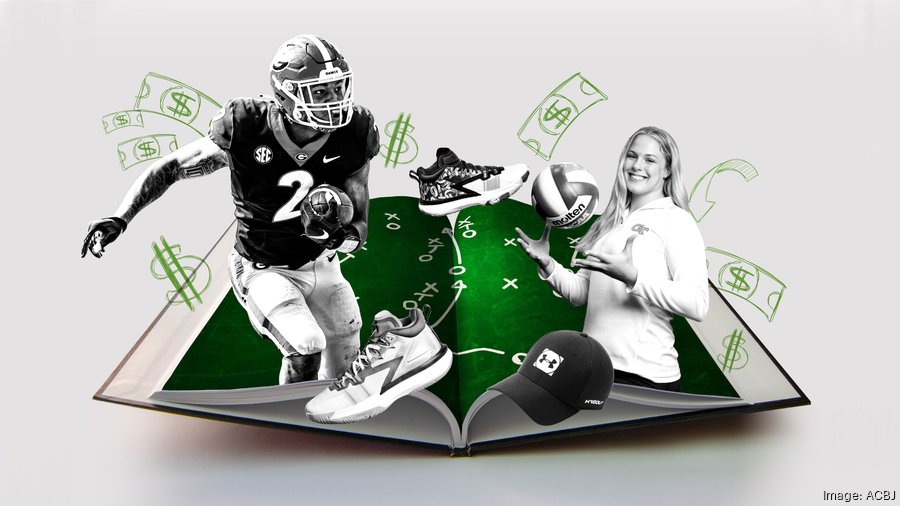
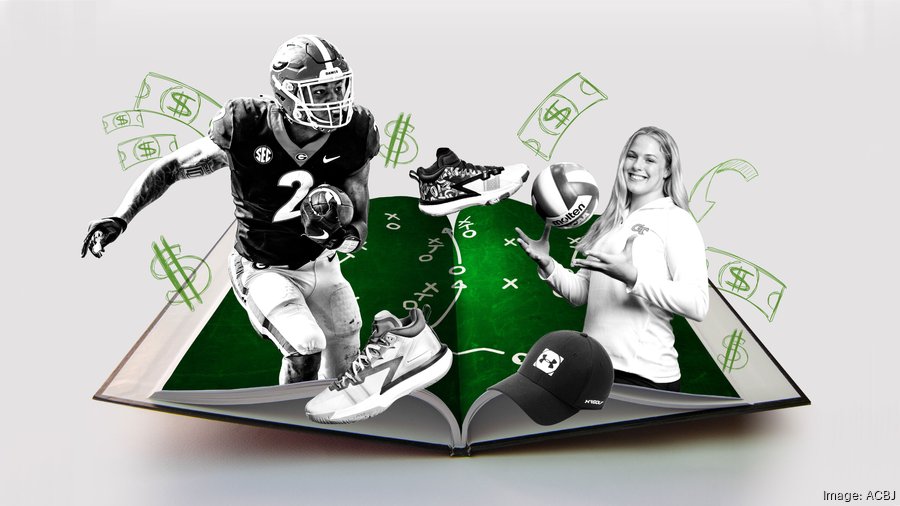
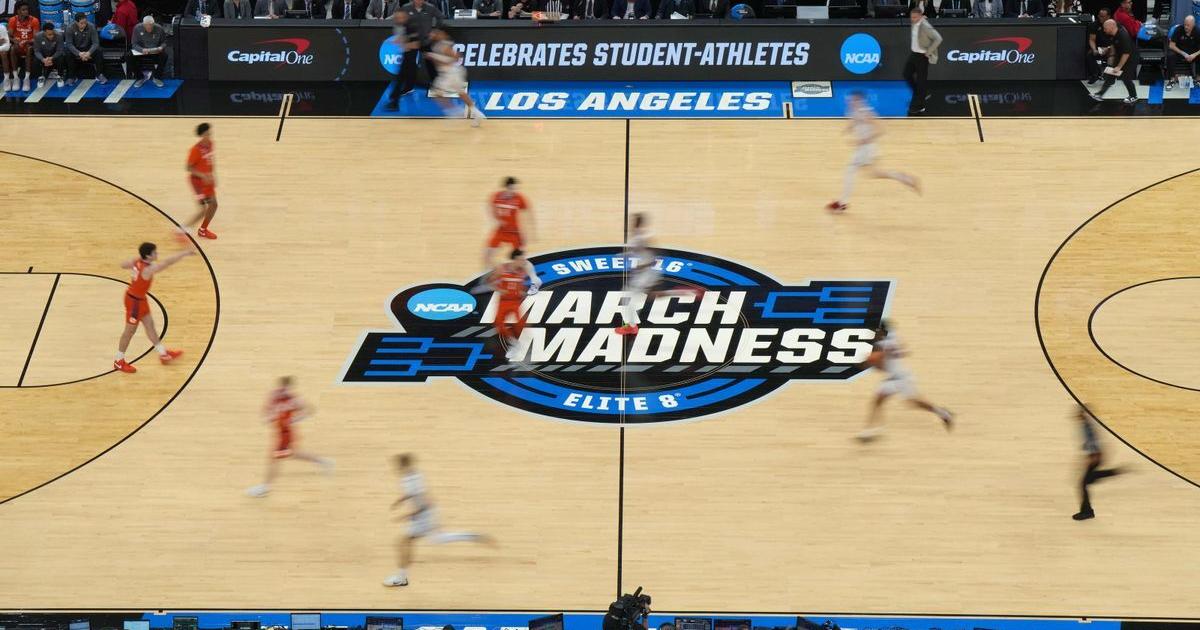
The NCAA was going after a relationship between Iamaleava and Spyre Sports, a Tennessee-affiliated NIL booster that aimed to raise million annually to pay Tennessee athletes.“If [these deals are] happening, these kids need to know when they make decisions and there will be a lot less negative fallout than putting these restrictions in place simply to create a gray area where people are nervous to operate in or maintain control, which the NCAA has tried to do,” said President of The Collective Association Russell White, whose organization advocates for the rights of athletes regarding NIL, to CBS Sports.“This settlement benefits generations of student-athletes, protects Tennessee universities from NCAA retaliation, and pushes college sports toward a new equilibrium that acknowledges financial reality while preserving competitive integrity,” Skrmetti said in a statement. “I’m glad to see the NCAA give up on defending a world that no longer exists.”
“Our whole thing was like; why can’t we talk to recruits at that point?” White said to CBS Sports. “Why can’t we be very open about what we’re doing as far as our methods and how we choose kids? It just brings clarity to the whole situation.”A new federal court ruling on name, image and likeness has expanded financial rights for college athletes. On March 17, the NCAA agreed to allow schools to discuss NIL opportunities with athletes prior to their commitment to those schools.NIL rights have been continually shifting since its initial implementation in 2021. However, new rights are coming to life for college athletes who are finally starting to receive benefits for their contributions to their universities, and this ruling is another step in the right direction for athletes. Before the ruling, schools and booster collectives were “allowed to speak generally about the kind of financial opportunities that might be available on campus” but were “prohibited from making a specific offer to an athlete until he or she was enrolled,” according to ESPN.
The ‘competitive integrity’ aspect Skrmetti spoke about connects back to the certain gray area that surrounded the dealings between athletes and boosters prior to commitments. Clouded NCAA rulings led to mixed relationships between schools, its athletes and the NCAA, and numerous different groups supported the abolition of these outdated rules.NCAA rules during the time stated that using NIL money as a part of recruiting was prohibited, as they tried to strike down the ‘pay-to-play’ aspect of the sport. Skrmetti spoke on the current state of college athletics, countering the NCAA’s investigation with a new vision for the future.“This judgment is fully consistent with the House settlement and underscores our support for student-athletes benefiting from their NIL and our commitment to provide increased benefits to student-athletes at every stage in their collegiate experience, creating a sustainable model for the future of college sports,” an NCAA spokesperson said in a statement following the ruling.Since 2021, when NIL rights were granted to athletes, the NCAA has slowly brought back the curtain that hindered athletes from financially benefiting from third-party boosters and from schools themselves. It was only a matter of time before athletes were granted the right to use NIL deals as incentive for choosing schools because it has been happening since profiting from NIL began.Spyre Sports’ goal was to return Tennessee football to a top team in the SEC and landing Iamaleava was a huge step towards this goal, a deal that was rumored to be up to eight-figures. The “public nature” of the deal aroused suspicion with the NCAA, which began to investigate the dealings with multiple other programs, including Florida State and Florida. The ruling of the case stems from a lawsuit filed by Tennessee Attorney General Jonathan Skrmetti, after the NCAA began investigating the University of Tennessee for possible recruiting violations based around five-star quarterback Nico Iamaleava.This new ruling slashes previous NCAA oversight that prohibited schools and NIL collectives from using NIL deals as an incentive for incoming high school recruits or athletes in the transfer portal.The previous NCAA rules created a cloud of confusion around athletes, schools and third-party boosters that had been in contact prior to the athletes’ commitments to schools. This led to investigations around dealings with those athletes that violated these vaguely-written laws held by the NCAA.
NIL
P.J. Fleck reveals Gophers’ mindset and strategy in NIL contract negotiations

There are hundreds of conversations happening behind closed doors of college football programs across the country right now. Between player-contract negotiations, coaching staff turnover and transfer portal decisions, the sport has transformed into the wild west.
Minnesota has already seen 13 of its own players announce their intentions to enter the transfer portal when it officially opens next month. They’ve also had notable players such as Drake Lindsey, Jalen Smith and Maverick Baranowski reveal their plans to return next season.
“I don’t think anything in elementary education taught you how to negotiate contracts in college. Even as you look at the past of you being a head football coach, everything you’ve gained experience on — and then you get into this world of new college athletics — and unless you’re a head coach that backs away and says, ‘Hey, I am just gonna coach football.’ You have to be so in line with your chief of staff, your GM, director of player personnel… You have to talk more than you ever have, and have meetings more than you ever had,” P.J. Fleck said.
“I don’t think the general public actually truly knows what college football truly looks like.”
Really insightful stuff from P.J. Fleck today on how the Gophers re-negotiate contracts. Worth the listen. 👇
— Tony Liebert (@TonyLiebert) December 17, 2025
Subscribe: Sign up to receive the free Gophers On SI newsletter
Minnesota has seen notable players like Bucky Irving, Phillip Daniels, and Athan Kaliakmanis enter the transfer portal over the years, but it’s routinely among the best programs in the country at retaining players. For example, past and present Gophers stars Justin Walley, Tyler Nubin, and Darius Taylor have turned down more lucrative offers to stay at Minnesota.
“It’s just a new era of college athletics, and we’ve embraced it. I think Gerrit Chernoff and his staff do an amazing job. Our retention rate, as of right now, is really, really high. Everybody does it on their own time frame. That’s one thing I’ve learned,” Fleck said.
“Everybody has representation. Everybody has their own view of not necessarily what they’re worth, and what they want to be able to get out of that, and what they value, and you respect that.”
Many fans and traditionalists are frustrated by what college sports have become, but it’s the new reality. It’s essentially one-year contracts for every player on your team, and they’re able to re-negotiate every offseason, with no salary cap or clear market. Fleck has historically had boundaries with the amount of information he shares about the inner workings of his Gophers’ program, but he shared a legitimate inside look on Wednesday.
The Gophers are currently in the stage of the offseason where they’re re-recruiting the entire roster. We likely won’t know the details or specifics of the contracts, but it was interesting to hear Fleck peel back the curtain.
Gophers news, rumors and analysis
NIL
Tulane rides wave of economic impact into college football postseason
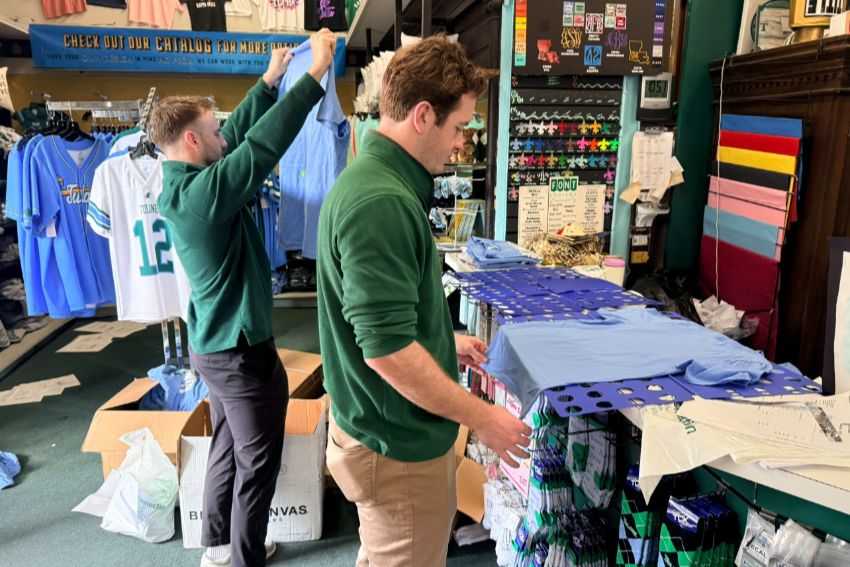
KEY TAKEAWAYS:
- Tulane’s playoff appearance is generating millions in donations, NIL funding and local business revenue
- Athletic donations jumped 373% year over year, totaling $1.68 million in just over a month
- NIL collectives raised more than $1.1 million following the conference championship
- Uptown retailers report record merchandise sales tied to Green Wave success
After being the first Louisiana university (sorry, LSU fans) to qualify for the college football playoffs, Tulane University, its athletic program, NIL organizations, and surrounding Uptown New Orleans businesses are seeing a multi-million dollar economic impact. From surging athletic donations to increasing merchandise sales, the Green Wave’s success on the field is translating into a massive green influx off of it.
“Since last week, we’ve taken in about 1,000 orders on the website, sold over 2,000 hoodies and 1,000 shirts, and a lot of the playoff merchandise,” said David Cariello, owner of the Campus Connection, an off-campus Tulane merchandise retailer on Broadway Street. Cariello has worked there since college and has owned Campus Connection since 2008. “This is unlike anything I have ever seen. Halfway through December, we are already at where we would be in a really good month, and by the end of the month, we may be at three times our typical monthly revenue.”
Cariello added that Campus Connection still has Tulane playoff merchandise available for fans interested in purchasing swag before Saturday’s game.
The American Conference champion Tulane Green Wave will travel to Ole Miss on Saturday to play in the first round of the college football playoffs. The game is scheduled for 2:30 p.m., and the winner will take on Georgia on Jan. 1, 2026, at the Caesars Superdome in New Orleans.

Ole Miss athletic officials are projecting a $74 million economic impact in Oxford for the playoff game, but, at home, in New Orleans, the institution and surrounding business community also are witnessing a financial windfall that administrators and shop owners describe as “unprecedented and magical.”
Tulane University Director of Athletics David Harris announced that between Nov. 12 and Dec. 16, the department received $1.68 million in donations from 519 donors. The figures represent a staggering 373 percent increase in dollar amount and an 83 percent rise in the number of donors compared to the same period last year.
Sam Scelfo, owner of the iconic Gambino’s Bakery in Metairie, has donated to Tulane University since 1973 and recalls his first donation of $100. For 52 years, Scelfo has consistently donated to the university and the athletics program.
“It’s magical what Tulane football has done this season. This college football playoff run is not just good for the university; it’s beneficial to the city as a whole, and it kind of mirrors the energy of New Orleans when the Saints are successful,” said Scelfo, who will attend Saturday’s game. “Even my LSU friends have called this past week to congratulate me. This season will breed success across the entire university – national recognition of the athletics program and university, more investment dollars, donations, applications – it’s just a win, win, win across the board.”
The financial impact extends into the modern frontier of college sports: Name, Image, and Likeness (NIL). Michael Arata, co-founder of the Fear The Wave Collective, reports the collective has raised over $1.1 million in NIL donations since the conference championship game. Arata can recall the early days of the Fear the Wave Collective in 2021 when he and co-founder Jimmy Ordeneaux set a goal of raising $10,000 in one year.

Fear The Wave fundraises to enhance accessibility for selected Tulane student-athletes to NIL deals, empowering them to gain financial and business exposure while maintaining their commitment to academics and sports.
“It’s such an unprecedented time for everyone involved in Tulane University and Tulane athletics. It’s been so busy but so much fun as well,” said Arata, who projects that Fear The Wave Collective will almost double its NIL fundraising amount in 2025 compared to 2024. “It would have taken us several months to raise the kind of money we just did in one week. We went from asking people to help maintain where we are to getting incoming calls of people wanting to do more to continue to support a program that has grown so much over recent years.”
Sumrall arrived at Tulane in 2024 and coached the team to a 9-5 record and an appearance in the Union Home Mortgage Gasparilla Bowl. This season, Tulane finished 11-2 and won the American Conference championship with a 34-21 win over North Texas in front of a sold-out Yulman Stadium.
Sumrall has announced that he will be the new head coach of the Florida Gators next season, but he has been allowed to coach Tulane through its playoff run. In the last week, Sumrall and his family announced a $100,000 contribution to the Green Wave Talent Fund, the university’s primary NIL fund and a Tulane athletics initiative to expand NIL opportunities for Tulane student-athletes across football, men’s and women’s basketball, and baseball.
“Jon’s donation shows the type of character he has, to help position Tulane for success after his departure. He is investing in the future of the program he helped build and in the lives of the kids he has changed,” Scelfo said. “His family’s donation definitely stimulated more donors to jump on board and also invest in the future of Tulane.”
For example, Arata said a Tulane family donated $500,000 to Fear The Wave Collective and then added $100,000 more after seeing Sumrall’s announcement. His donation also encouraged another donator to send a significant amount, and more donations have continued to come in since Tuesday’s news.
“We feel like we are just getting started, and this momentum over the last month can be self-sustaining and powerful going into the future,” Arata said. “We hope this sets the stage for building a program that is a permanent fixture on the national stage. Tulane was in the first Sugar Bowl, so why not play in the next one? Can you imagine the energy of the city and economic impact the Sugar Bowl will have if Tulane plays Georgia on New Year’s Day?”
NIL
JMU Coach Bob Chesney Doesn’t Hold Back On Dan Lanning And Dante Moore

The No. 5 Oregon Ducks (11-1, 8-1 Big Ten) and the Sun Belt Conference champions, No. 12 James Madison Dukes (12-1, 8-0 Sun Belt), are nearing their first-round matchup in the College Football Playoff in Eugene, Oregon, at Autzen Stadium.
Dukes coach Bob Chesney is going into unfamiliar territory, with their best win on the 2025 season coming against the Troy Trojans on Dec. 5 in the Sun Belt title game at home inside Bridgeforth Stadium in Harrisburg, Virginia, 31-14. Their lone loss at the Atlantic Coast Conference’s Louisville Cardinals near the start of the season on Sept. 5, 28-14.

Bob Chesney Doesn’t Hold Back On Dan Lanning And Dante Moore
Regarding redshirt sophomore quarterback Dante Moore, Chesney knows he’s the most dangerous player on the field for the Ducks, due to his ability to impact the offensive game in any facet under center. He touched on the leader when speaking to the media before the Saturday, Dec. 20, matchup.
“To me, it’s the willingness of the quarterback to throw into coverage. He understands tight windows and trusts his arm. He could be one of the top draft picks in this draft. There’s a lot in there. He has confidence and trust. He’s mobile. He does a really good job of getting the ball out,” Chesney stated.
When Chesney touched on matching up with Oregon coach Dan Lanning, the future UCLA Bruins head coach spoke on Lanning’s success in taking over a new program back in 2022 and making it his own, to what the college football world sees today.

“They’re extremely well coached. They are just really good at understanding protections and trying to break those protections. When they get to their one-on-one matchups or if they get on a running back, they do a really good job of keeping their pad level down.”
Chesney continued, “They do not quit as they are pursuing the quarterback. A lot of the big plays that have happened against them have been quarterbacks being able to evade some sort of rush and get their feet set and find something downfield.”
MORE: Oregon Ducks Face Escalating Flood Risk as Playoff Game Approaches
MORE: Bo Nix and Justin Herbert Push Toward NFL Playoffs as Former Ducks Thrive
MORE: JMU Quarterback Doesn’t Hold Back On Oregon, Flashy Uniforms, Autzen Stadium
SIGN UP FOR OUR NEWSLETTER HERE!
Preparing for Autzen Stadium Atmosphere
In front of a sold-out crowd of 54,000+ in Eugene on Saturday, Chesney understands that the loud atmosphere will play a major factor for his units on both sides of the ball when trying to hear play-calling from the James Madison sideline.
That’s without the full Ducks’ student body present, being on Christmas break.
“We want to try and make it to where we can’t even hear each other on both sides of the ball, knowing that it will affect the offense and the special teams more than it will the defense, but that is definitely what we’re jumping into,” Chesney said. “We have all their songs, all the things they do, their band, everything we could gather is what we’re putting on display out there for our guys, so that’s something that they’ve heard before.”

Oregon vs. James Madison NIL Disparity
Chesney pointed out that James Madison’s Name, Image, and Likeness or NIL for the 2025 season was around $1 million. As for Oregon’s football program and NIL, it’s considered to be the top in the sport. This is due to the university’s long-time partnership with Nike and co-founder Phil Knight.
In fact, the Dukes and Ducks are so far from each other financially that Oregon’s defensive coordinator, Tosh Lupoi (earned $2 million in 2025), makes more than James Madison’s head coach and his 2025 roster combined. Chesney was owed a $833,495 salary for the 2025 season.
NIL
College football program set to lose 15 players to NCAA transfer portal
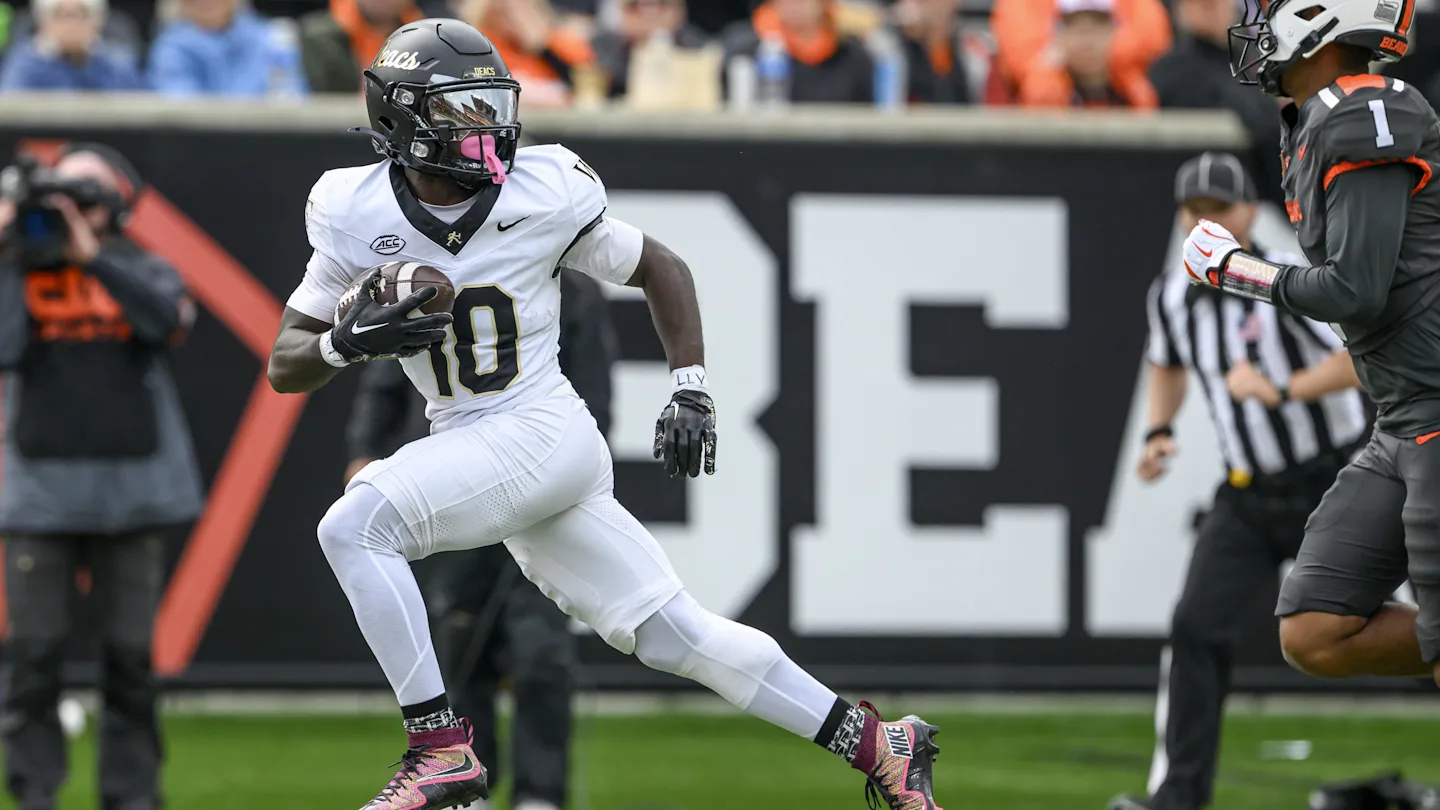
It was a fairly successful first season for Wake Forest under new head coach Jake Dickert.
The Demon Deacons finished the regular season 8-4 overall (4-4 ACC), qualifying for a bowl game for the first time since 2022.
After a shaky 2-2 start, the Demon Deacons won six of their last eight games, marking a major in-season turnaround. They notched quality wins over No. 14 Virginia and SMU, but fell to Duke in their final game of the season.
It was a remarkable turnaround for Dickert, who took over the program after back-to-back 4-8 seasons under Dave Clawson. Dickert accepted the position after four seasons at Washington State, where he compiled a 23-20 overall record.
The Demon Deacons have one final game left against Mississippi State in the Duke’s Mayo Bowl, but that hasn’t deterred multiple players from announcing their intentions to enter the transfer portal.
According to 247Sports, the Demon Deacons have had 15 players enter the transfer portal as of Dec. 18. Most recently, freshman quarterback Elijiah Oehlke announced he will be entering the portal when it opens on Jan. 2, joining a host of other former Demon Deacons.

One of the most notable losses for the Demon Deacons was freshman wide receiver Chris Barnes, who announced his transfer decision on Dec. 14. Barnes led Wake Forest with 39 receptions for 547 receiving yards and three touchdowns. He was named an All-ACC honorable mention as a wide receiver, while earning third-team honors as a return specialist.
Only two days later, sophomore wide receiver Micah Mays also announced his intentions to enter the transfer portal. He finished the year with 18 catches for 302 receiving yards and two scores, averaging 16.8 yards per reception. Both Barnes and Mays were promising young offensive stars, making both major losses for the program.
Another key loss was defensive tackle Mateen Ibirogba, who transferred from Georgetown to Wake Forest before the 2023 season. He stepped into a bigger role this season, totaling 21 tackles, 3.5 tackles for loss, and two sacks for the Demon Deacons.
Along with the names above, tight end Harry Lodge, safety Jacob Cosby-Mosley, defensive lineman Ka’Shawn Thomas, wide receiver EJ Reid, offensive lineman Derrell Johnson II, and offensive tackle Nathan Pahanich are some other players who have announced their decision to enter the transfer portal.
It’s important to note that the NCAA transfer portal does not open until Jan. 2, 2026. All players can do right now is announce their plans to enter the portal; once it opens, they can officially enter their names and contact their preferred schools. The transfer period will close on Jan. 16 after 15 days.
Wake Forest will face Mississippi State in the Duke’s Mayo Bowl on Jan. 2, 2026, in Charlotte, North Carolina. Kickoff is scheduled for 7 p.m. CT on ESPN.
NIL
Mitch Barnhart addresses retirement rumors, Kentucky’s deal with JMI in new interview

Is Mitch Barnhart’s tenure as the University of Kentucky’s athletic director coming to an end next year? Barnhart addressed the retirement rumors in a new interview with the Herald-Leader, telling Jon Hale that he’s still “invigorated” by his work, but when the moment comes that he’s not, he’ll sit down with his family and discuss the future and what’s best for them and the university.
The questions are timely. In 2023, Barnhart signed a contract extension through the 2027-28 school year that would allow him to transition to a special assistant to the president role starting July 1, 2026. To do that, he must give six months’ notice, making the earliest deadline December 31, 2025, two weeks from today.
“Two things. I love competing. You know that. You know I love this place with all my heart. We came here in 2002 and planned on saying six to eight years and stayed a lot longer. I know there’s people that get frustrated because I’ve been here a long time, and that’s OK. I sense that. An old boss of mine told me one time, every time you make a 50-50 decision, you lose 50% of your friends. He’s probably not wrong, but we love Kentucky. I get up invigorated about what we’re doing at work. I love watching our kids compete. When that day comes — and don’t know — I’ll sit down with my family, and we’ll talk and determine what’s best for our family and for me, but most importantly, what’s best for Kentucky.
“I’ve got a couple, two-and-a-half years left on my contract. The ambassador clause is out there. It can go anytime after December 31, and if that’s something that’s best for this university, then we’ll have that conversation. If it’s something that we want to continue to work at it, I would like to win some more things. I like winning. The volleyball run has been a blast. I’d like to win at some more things and see what we got. And I love our coaches. We’ve got good people and fun to work with.”
The interview comes one week after Kentucky Sports Radio’s Jacob Polacheck and Jack Pilgrim published an article on Kentucky Basketball’s struggles on the recruiting trail, which cited anonymous sources that said UK’s partnership with JMI for NIL management has played a part, specifically the highly structured brand partnership with UK’s official partners. Sources told KSR that JMI was requiring recruits to sign away NIL rights that would normally be untouched at any other school.
Before Kentucky’s game vs. Indiana, Barnhart addressed the JMI concerns in an interview with Tom Leach, defending the partnership and insisting that UK student-athletes are free to sign third-party deals while acknowledging that the university encourages them to work with its official partners. He does the same in this interview with Jon Hale, although the issue of what prospective student-athletes (recruits) are asked to agree to as part of their deals to come to Kentucky is still unclear.
HL: When an athlete accepts revenue sharing money from UK, do they automatically get tied into the JMI deal, or do they opt into that separately?
Barnhart: “There’s some things that they’re opting into. OK, there’s some things they opt into, and obviously that’s a part of that process. And then there’s some things that we say, ‘Hey, does this fit you? Does this fit you? Do you want us to go out and find you (a deal)? Is there some things that make sense in a marketing piece, a partnership piece, so to speak, or a sponsorship piece?’ And if it doesn’t, you’ve got your own thing; you’re not prohibited from doing your own thing. We’ve shown that on many cases with student-athletes in our program. We’ve got student-athletes in our program that have got deals that are outside our partners, that they’ve gone and had an opportunity to go access and do those themselves. They just can’t use our IP marks in that process. Part of the ability to use the Kentucky marks, which we think is super valuable, is that relationship with JMI. So yes, that is part of that process. But to go do your own thing, you can certainly do that.”
When asked, Barnhart said he was not aware of any UK athletes being denied a deal because it was with a competitor. He talks a lot more about the JMI deal, collectives, transparency about revenue-sharing figures, and the roles of general managers in the NIL era in the interview. Check it out at the Herald-Leader. Matt Jones has reached out to Barnhart for an interview on KSR and has not received a response.
[Q&A: Kentucky AD Mitch Barnhart responds to criticism of JMI deal, NIL setup]
NIL
College football players are earning millions – wealth managers are helping them keep it

Name, image and likeness (NIL) rights were created to finally allow college athletes to profit from their talent. That’s led to formerly unpaid amateur players becoming instant millionaires, using their newfound wealth to save and invest, help out family, or even share the money with their teammates.
But handing that much money to teenagers is also risky. Grown professional athletes have blown through millions of dollars in the past, and while the stories of “going broke” are more infrequent today, there’s still a risk.
In steps NIL financial advisors, whose sole focus is making money earned from college stretch further than the one to five years an athlete is in school. They advise clients on the benefits of saving, investing, budgeting, taxes, and saying “no.”
In the past 10 years, there has been a massive shift in player compensation. Former and current players across different sports have successfully challenged and sued for greater equity in college sports revenue, including increases in stipends (2015), the right to profit from their NIL (2021), and the right to receive direct compensation from their university (2025).
According to Opendorse, a company that facilitates NIL endorsements for athletes, it’s estimated that college football players alone earned $1 billion from NIL payments in 2024. The company estimates that total will nearly double ($1.9 billion) by the end of 2025 after the introduction of revenue sharing on July 1.
Didier Occident is a wealth management advisor at Milwaukee-based financial services firm Northwestern Mutual. He also runs a financial literacy program, Secure the Bag. It is for college and professional athletes.
Secure the Bag is a 60-minute presentation in which Occident discusses budgeting, personal credit, taxes, and other money matters. It puts the audience through an interactive budgeting game that requires them to make financial decisions based on real-world examples from the four years of NIL’s existence.
For example, there’s an athlete Occident represented who made an expensive, beyond-his-means purchase that got him down to almost no money — $75 to be exact. To get the player’s money back, he posted the item on Instagram for sale.
“There’s always that ‘Keeping up with the Joneses’ feeling, but now these guys gotta keep up with IG,” he said.
Occident began working with college athletes around 2018 when conferences began increasing some player stipends by about $2,000. He stressed to athletes at the time to view the stipend as a salary so that they know how to manage any kind of money.
“If you can’t manage $1,000,” Occident would tell the players, “you can’t manage $1 million.”
He’s presented at TCU, Florida State, Michigan, Oregon, Alabama, Tennessee, Oregon State and a few other football programs. He’s also presented with eight NFL teams, including the Los Angeles Chargers and San Francisco 49ers.
When Occident first talks with teams or meets with prospective clients, he asks them, “What do you want to achieve with your money?” The more specific the goal — to travel the world or one day open a food truck — the more faith Occident has in his ability to show them the steps to reaching it.
“Because they have something that is in their mind that is going to keep them walking that straight line,” Occident said.
There’s a widely held assumption that rich people will eventually lose all their money. Whenever the lottery gets to a certain amount, it’s been said that 70% of lottery winners eventually declare bankruptcy, even though that likely isn’t true. Much of the interest in the various gambling scandals plaguing the sports world stems from interest in rich athletes risking millions on sports betting.
But these are adults we’re talking about. What happens when a bunch of teenagers are handed millions of dollars? It’s easy to assume they’ll blow their riches just as quickly.

Financial Literacy For Student Athletes
Where college athletes spend their money isn’t all that shocking.
“Unfortunately, stereoptical things: the cars, clothes, the jewelry,” said Pat Brown, a wealth manager at Lawrence, Kansas-based financial services firm Creative Planning and the founder of “Financial Literacy for Student Athletes,” which specializes in money management programming for college athletes.
Brown was an all-conference linebacker at Kansas from 1994 to 1999, back when players received $600 monthly stipends compared to the estimated $5 million Texas quarterback Arch Manning is bringing in today.
“That was big money right there. Shoot,” Brown recalled.
During his final season, Brown took a class that introduced college athletes to basic financial literacy tools, such as investing and life insurance. Though Brown grew up middle class in the Ohio suburbs, he didn’t know anything about money management.
“Being Black, we just don’t talk about that stuff,” said Brown, author of the book, Financial Literacy for the Culture: Teaching What Wasn’t Taught-Credit, Budgeting, Investing, and Legacy for the Culture.
It is why Brown sees it as his purpose to teach today’s athletes how to earn, maintain and increase their wealth. He launched “Financial Literacy for Student Athletes” around 2021 and has presented at Kansas, West Virginia and Ohio.
Brown goes over opening bank accounts, the importance of credit scores/reports, and the various types of investment devices (traditional, Roth IRA, stocks, etc.). Through Creative Planning, which counts more than 500 college and professional athletes as individual clients, Brown helps his clients set up taxable and retirement accounts, establish limited liability companies, and review NIL contracts.
“I wasn’t exposed to this stuff until my senior year [at Kansas],” Brown said.
While working toward wealth for all college football players is the goal, it’s especially important for Black players, who make up nearly 45% of the sport.
Black people live within a system that legally held them back until about 60 years ago, creating a wealth gap that persists to this day: Median white net worth in America is almost six times that of Black net worth.
According to popular media such as ESPN’s “Broke” documentary, Black athletes are almost expected to blow all their money: Former NFL receiver Odell Beckham Jr. recently asked, “Can you make that last?” in reference to signing a $100 million contract.
But, young rich Black athletes aren’t any more irresponsible with their money than anyone else: Americans owe $1.23 trillion in credit card debt.
There is no group, Occident said, that has more opportunity to narrow that wealth gap than Black athletes.
“It is my mission to help them do what they can to erase the systemic part of what we’ve dealt with for 400-plus years,” he said.
Occident and Brown believe athletes are uniquely suited to handle money. The discipline to stick to a financial plan is no different than the discipline needed to play at a high level in college. Starring at the NCAA Division I level is almost impossible without being accountable and consistent.
“You don’t get that without being consistent and doing what you need to do,” Occident said.
Baltimore Ravens defensive back Malaki Starks neither had much money growing up nor did he know how to save it.
“It was like get money, spend money,” he said.
But after Occident’s presentation to the Georgia football team while Starks was on the roster, it eased Starks’ mind about managing his $160,000 in NIL deals.
Starks said he now has at least four investment accounts he manages. After getting his first NIL check his sophomore year at Georgia, Starks said he saved some, gave some to his parents, and the rest …
“I kept enough to get gas for the next month and go out to eat, like, twice,” he said.
-

 Motorsports1 week ago
Motorsports1 week agoSoundGear Named Entitlement Sponsor of Spears CARS Tour Southwest Opener
-

 Motorsports3 weeks ago
Motorsports3 weeks agoJo Shimoda Undergoes Back Surgery
-

 NIL3 weeks ago
NIL3 weeks agoBowl Projections: ESPN predicts 12-team College Football Playoff bracket, full bowl slate after Week 14
-

 Rec Sports3 weeks ago
Rec Sports3 weeks agoHow this startup (and a KC sports icon) turned young players into card-carrying legends overnight
-

 Rec Sports3 weeks ago
Rec Sports3 weeks agoRobert “Bobby” Lewis Hardin, 56
-
Sports3 weeks ago
Wisconsin volleyball sweeps Minnesota with ease in ranked rivalry win
-

 Motorsports1 week ago
Motorsports1 week agoDonny Schatz finds new home for 2026, inks full-time deal with CJB Motorsports – InForum
-

 Motorsports3 weeks ago
Motorsports3 weeks agoIncreased Purses, 19 Different Tracks Highlight 2026 Great Lakes Super Sprints Schedule – Speedway Digest
-
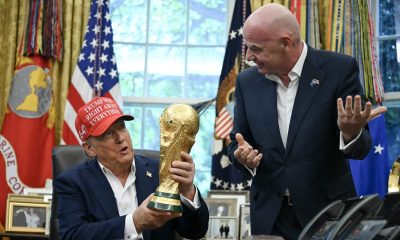
 Rec Sports2 weeks ago
Rec Sports2 weeks agoHow Donald Trump became FIFA’s ‘soccer president’ long before World Cup draw
-
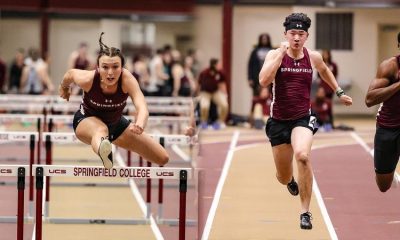
 Sports2 weeks ago
Sports2 weeks agoMen’s and Women’s Track and Field Release 2026 Indoor Schedule with Opener Slated for December 6 at Home



























































